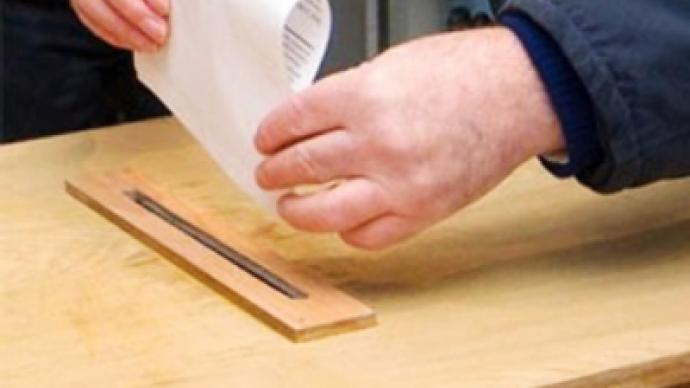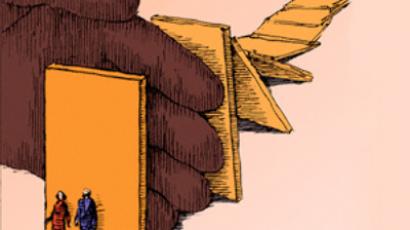Russia ready for major election day

October 11 will be the next election day in Russia – on Sunday millions of citizens will be able to vote for deputies of local legislatures throughout the country.
While the elections will take place in 76 of 83 subjects of the Russian Federation, most of them will be of a very small scale. Russian analysts expect interesting events only in Moscow, where the elections of the local legislature will take place, and in Caucasus republics of Chechnya and Ingushetia, which will hold local elections, including mayoral elections, in the capitals for the first time in modern Russian history.
Also, elections in the major Volga city of Astrakhan and the city of Yuzhno-Sakhalinsk could be of relative interest.
This week, the all-Russian election commission and its offices in the Regions reported that all was ready for the election day. While the political climate ahead of the polls is extremely calm and Russian public shows little interest in politics, officials decided to test newest technology and devices. The head of the Central Elections Commission, Vladimir Churov, has told reporters at a recent news conference that his agency is working on three priority projects – scanning devices, touch screen terminals and remote voting technologies, such as voting by SMS. The new ballot boxes that will be tested on Sunday can automatically count the ballots and votes, and even print out the preliminary results. Apart from this, the box is equipped with a data recorder that is saving all information on a specially protected disc, allowing it to be recovered even if the box is destroyed by fire or water.
Moscow
According to the latest amendments to the Russian election law, of the thirty-five places in the city legislature, eighteen will be given to the winners of the party list voting, and seventeen will be taken by independent constituency candidates. The term for the deputies has been increased to five years instead of four, and the passing threshold for parties was dropped to 7 percent from previous 10.
Five parties are competing for seats in the city legislature. These are the pro-Kremlin United Russia, the Communist Party of the Russian Federation, the Liberal Democratic Party, the liberal Yabloko party and the relatively young Just Russia party, which is of pro-Kremlin orientation. The head of the WTSIOM polling center said in an interview this week that he expected United Russia to get at least 50 percent of the votes in party lists and practically all of the independent constituencies. He predicted that the Communists and Liberal Democrats will get about 15 percent of the seats each, and Just Russia and Yabloko would compete for the fourth place or get ousted from the race for too low a result.
The general turnover is seen to be very low, but a bit higher than the one on the previous city elections in 2005. Back then, the turnover at the elections was 34 percent. United Russia received 47.25 percent of the votes, the Communists got 16.75 percent and Yabloko got 11.5 percent. All independent constituencies were taken by United Russia members.
Chechnya
Chechnya is holding municipal elections for the first time in modern Russian history. Four parties are competing for seats in the Chechen parliament. At the end of last month, the leaders of United Russia, the Communist Party, Liberal Democrats and A Just Russia party signed an agreement stating that no one was using “black PR technology” in preparation for the elections, and the republican elections commission said that this was an indication that the elections would be transparent and honest.
Chechen residents will be electing a total of 2,565 deputies of various legislatures and 236 heads of municipal entities, including the mayor of the capital city Grozny. Most observers expect a landslide victory for the United Russia party, headed by Chechen President Ramzan Kadyrov. Interestingly, 60 percent of candidates in Sunday’s elections are young people under thirty.
Another important point is that after the October 11 elections, Chechnya and neighboring Ingushetia will be able to get their own courts with juries (under Russian law, jury members are selected by local legislatures). This will force the Supreme Court of the Russian Federation to make a final decision on the death penalty. At present, Russia has a moratorium on the death penalty, imposed in 1999. Then, the Supreme Court ruled that jury courts must be working on the whole territory of the country to avoid discrimination in passing death sentences.













